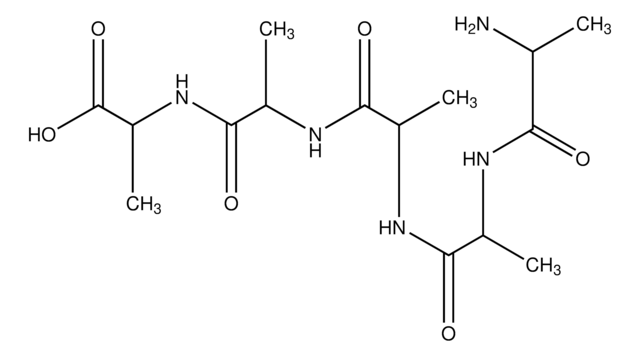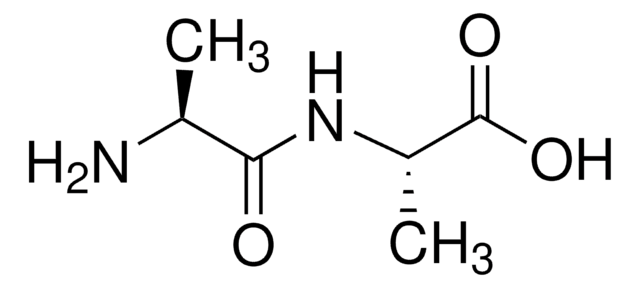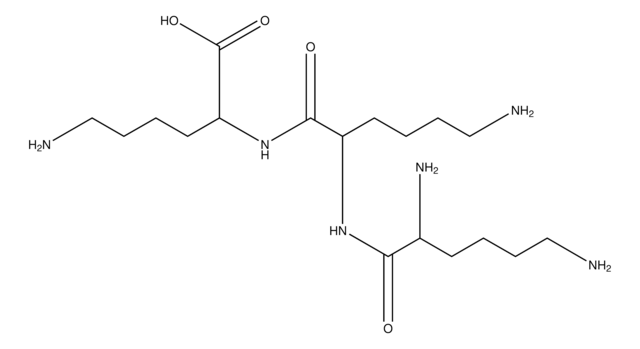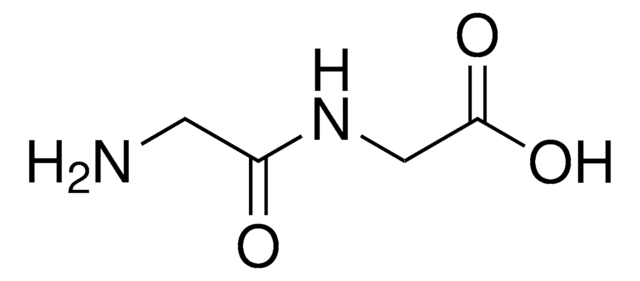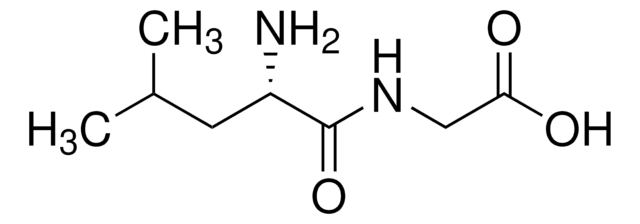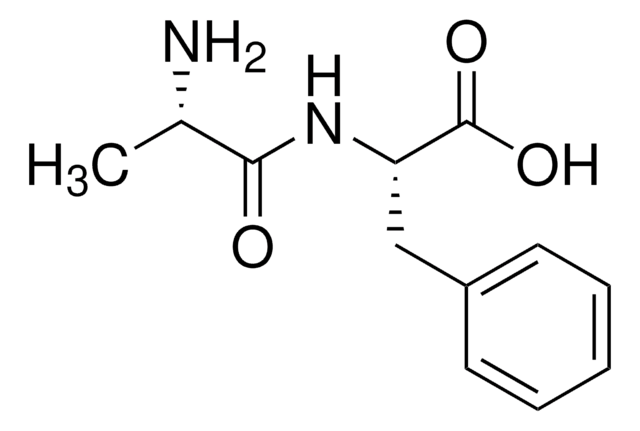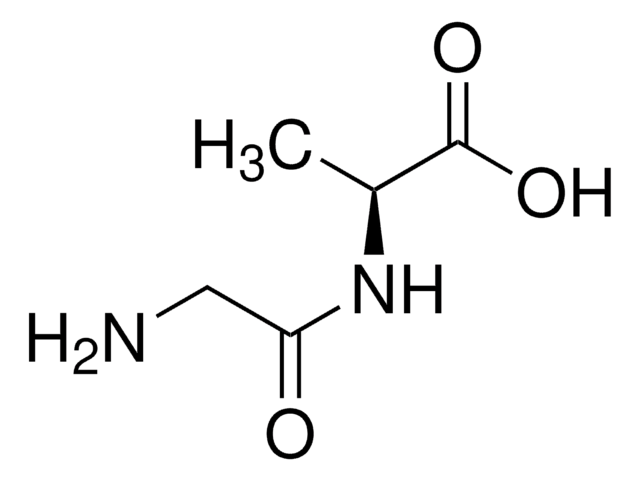All Photos(1)
About This Item
Empirical Formula (Hill Notation):
C9H17N3O4
CAS Number:
Molecular Weight:
231.25
EC Number:
MDL number:
UNSPSC Code:
12352209
PubChem Substance ID:
NACRES:
NA.26
Recommended Products
Product Name
Ala-Ala-Ala,
assay
≥98% (TLC)
Quality Level
form
powder
color
white
storage temp.
−20°C
SMILES string
C[C@H](N)C(=O)N[C@@H](C)C(=O)N[C@@H](C)C(O)=O
InChI
1S/C9H17N3O4/c1-4(10)7(13)11-5(2)8(14)12-6(3)9(15)16/h4-6H,10H2,1-3H3,(H,11,13)(H,12,14)(H,15,16)/t4-,5-,6-/m0/s1
InChI key
BYXHQQCXAJARLQ-ZLUOBGJFSA-N
Looking for similar products? Visit Product Comparison Guide
Amino Acid Sequence
Ala-Ala-Ala
Application
Trialanine (Ala-Ala-Ala) may be used along with other short chain alanines, tetra- and penta-alanine, as model compounds to study physicochemical parameters of small peptides.
Storage Class
11 - Combustible Solids
wgk_germany
WGK 1
flash_point_f
Not applicable
flash_point_c
Not applicable
ppe
Eyeshields, Gloves, type N95 (US)
Choose from one of the most recent versions:
Already Own This Product?
Find documentation for the products that you have recently purchased in the Document Library.
Customers Also Viewed
Fabrizio Marinelli et al.
PLoS computational biology, 5(8), e1000452-e1000452 (2009-08-08)
Trp-cage is a designed 20-residue polypeptide that, in spite of its size, shares several features with larger globular proteins.Although the system has been intensively investigated experimentally and theoretically, its folding mechanism is not yet fully understood. Indeed, some experiments suggest
Tetsuo Asakura et al.
Journal of the American Chemical Society, 128(18), 6231-6238 (2006-05-04)
The structural analysis of natural protein fibers with mixed parallel and antiparallel beta-sheet structures by solid-state NMR is reported. To obtain NMR parameters that can characterize these beta-sheet structures, (13)C solid-state NMR experiments were performed on two alanine tripeptide samples:
Infrared multiple photon dissociation spectroscopy as structural confirmation for GlyGlyGlyH+ and AlaAlaAlaH+ in the gas phase. Evidence for amide oxygen as the protonation site.
Ronghu Wu et al.
Journal of the American Chemical Society, 129(37), 11312-11313 (2007-08-28)
Jos Oomens et al.
Journal of the American Society for Mass Spectrometry, 20(2), 334-339 (2008-11-18)
Infrared multiple photon dissociation (IRMPD) spectroscopy is used to identify the structure of the b(2)(+) ion generated from protonated tri-alanine by collision induced dissociation (CID). The IRMPD spectrum of b(2)(+) differs markedly from that of protonated cyclo-alanine-alanine, demonstrating that the
Jos Oomens et al.
Journal of the American Society for Mass Spectrometry, 21(5), 698-706 (2010-02-26)
We present the first infrared spectra of a mass-selected deprotonated peptide anion (AlaAlaAla) and its decarboxylated fragment anion formed by collision induced dissociation. Spectra are obtained by IRMPD spectroscopy using an FTICR mass spectrometer in combination with the free electron
Our team of scientists has experience in all areas of research including Life Science, Material Science, Chemical Synthesis, Chromatography, Analytical and many others.
Contact Technical Service

